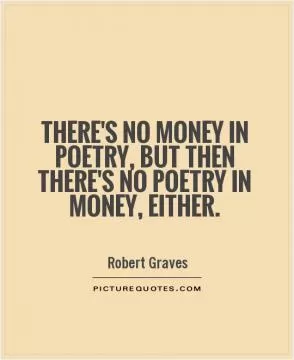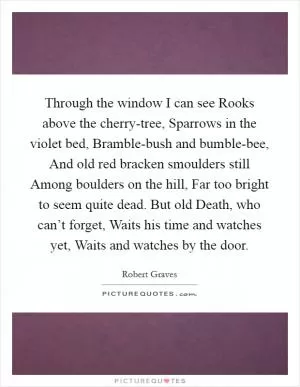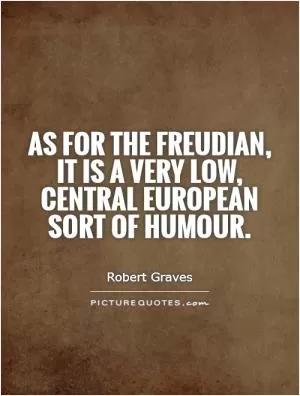Few are wholly dead: blow on a dead man's embers and a live flame will start

Few are wholly dead: blow on a dead man's embers and a live flame will start
Robert Graves, the renowned English poet, novelist, and scholar, was a firm believer in the idea that even after death, a person's influence and legacy continue to live on. This belief is reflected in his famous quote, "Few are wholly dead: blow on a dead man's embers and a live flame will start."Graves himself left behind a rich body of work that continues to inspire and influence readers and writers to this day. His poetry, with its vivid imagery and powerful language, captures the essence of the human experience in all its complexity. His novels, such as "I, Claudius" and "Goodbye to All That," delve into the depths of history and psychology, offering profound insights into the nature of power, love, and war.
But Graves' influence goes beyond his literary output. As a scholar, he made significant contributions to the fields of mythology and ancient history, challenging conventional wisdom and offering new interpretations of ancient texts and traditions. His theories on the White Goddess and the importance of poetry in human culture have had a lasting impact on the study of literature and mythology.
In his personal life, Graves was known for his unconventional beliefs and practices, including his adherence to the principles of the ancient Greek religion and his rejection of organized religion. He believed in the power of the individual to shape their own destiny and to create meaning in a seemingly chaotic world.
Graves' quote, "Few are wholly dead: blow on a dead man's embers and a live flame will start," can be seen as a reflection of his own belief in the enduring power of the human spirit. Even after death, he believed that a person's ideas, passions, and creativity can continue to inspire and ignite new flames of thought and action in the world.












 Friendship Quotes
Friendship Quotes Love Quotes
Love Quotes Life Quotes
Life Quotes Funny Quotes
Funny Quotes Motivational Quotes
Motivational Quotes Inspirational Quotes
Inspirational Quotes